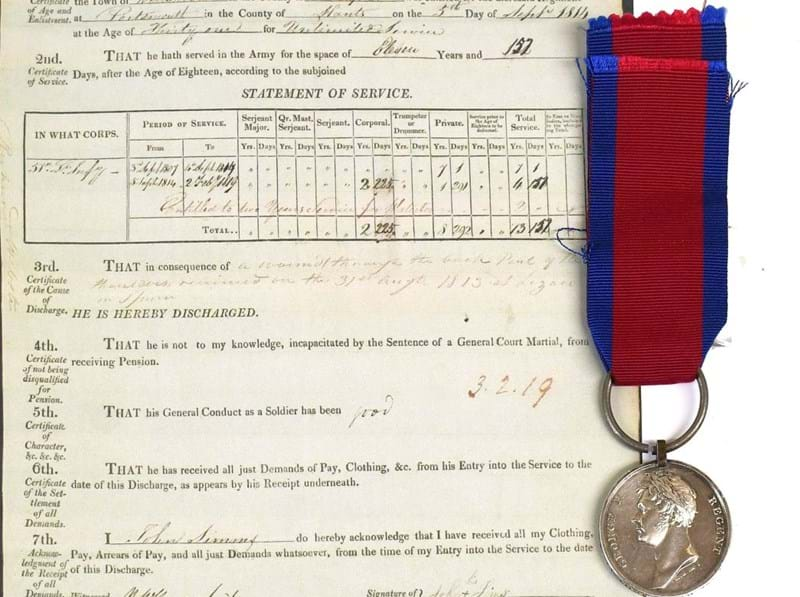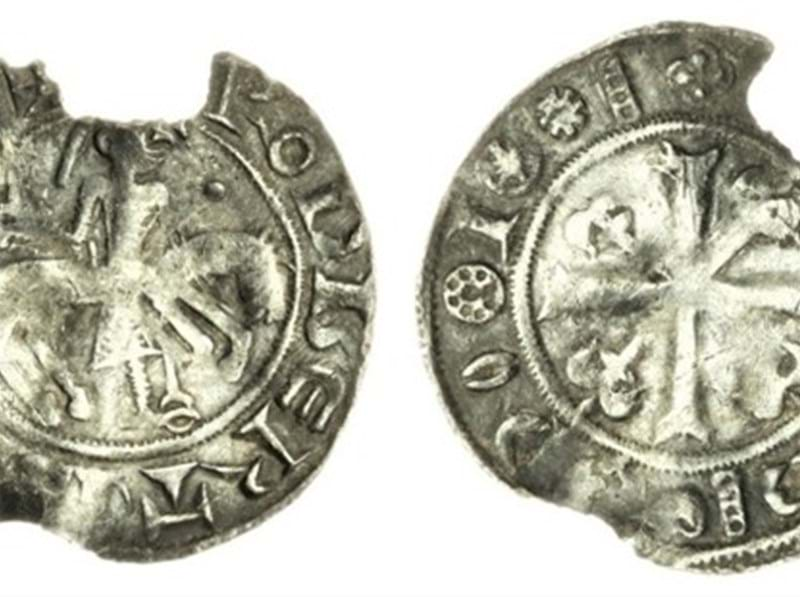Medals were in high demand in Tennants Auctioneers’ Militaria and Ethnographic Sale on 20th March, with good results seen for rare medals, and those lots with strong provenance. The top lot of the sale was a Second World War George Medal Group of Four, selling for £3,600 (plus buyer’s premium), which was awarded to A.B. Charles A. Halls and comprised the George Medal (George VI), 1939-45 Star, Atlantic Star and War Medal. Charles ‘Charlie’ Halls was recognised for his great bravery, having volunteered to work on mine disposal while serving in the Royal Navy in 1942. Born in 1922, Charlie joined the Royal Navy aged just 15, and was serving in Aden when war was declared. Following a training course, he was posted to the Admiralty and spent the next 18 months defusing mines on land. Sea mines, which were also used by the Germans as land mines, were dropped with a parachute from enemy planes. These mines, which were 8ft long and weighed 1 ton, hit the ground at 40 mph acting like a bomb. They were often booby trapped in case they didn’t explode on impact. It was a very skilful and dangerous job to deactivate them. Charlie deactivated 15 mines and was awarded the George Medal for deactivating two very difficult examples, one being at Charing Cross Station.
News & Insights
Medals awarded to Blitz bomb-disposing hero lead Militaria Sale
Also selling well amongst the medals was a Waterloo Medal 1815 awarded to Thomas Wilding (sold for £2,000), a circa 1975 Republic of Iraq Order of the Two Rivers, First Class Grand Cross, Civil Division (sold for £1,600), and an Indian Mutiny Medal 1857-59, with clasp for the Defence of Lucknow awarded to P. Flemming (sold for £1,600). Further highlights included an Arctic Medal 1818-1855 (sold for £1,100), an Honourable East India Company Seringapatam Medal 1808 (sold for £800), and a collection of Polish Medals and Badges (sold for £950).
Elsewhere in the sale, a scrap of red and yellow striped silk thought to have come from a bed in which Napoleon Bonaparte slept, sold for £1,100 against an estimate of £100-150. An accompanying card, which belonged to Achille Souquet, Vice-Consul of Denmark and the Netherlands, stated that Napoleon slept in the bed from which the silk was taken between June 1803 and June 1804 outside the camp established at Boulogne and Etaples for the embarkation of the armed fleet on the banks of the River Liane and Canache prior to the planned invasion of England. A Pair of 19th Century Dutch Bronze Signal or Salute Cannons in the 17th Century Style sold for £3,200, a George III Long Sea Service Flintlock Pistol sold for £1,200, and a rare Anti-Garotte Folding Knife by Unwin & Rodgers of Sheffield sold for £750. Finally, amongst the Ethnographica in the Sale, was a 19th Century West African Divination Bowl, possibly originating with the Yoruba people, which sold for £1,300.
The sale achieved a total hammer price of £77,810 for the 303 lots with an 84% selling rate.
< Back to News

4th July 2025, 09:30
Plan your visit to our Leyburn Head Office and Salerooms, or our Harrogate and London Offices
Get your antiques and collectables valued by our team of specialists.






















